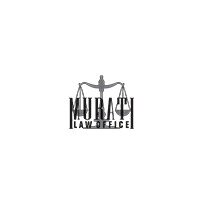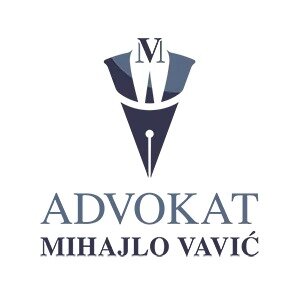Best Trusts Lawyers in Montenegro
Share your needs with us, get contacted by law firms.
Free. Takes 2 min.
Or refine your search by selecting a city:
List of the best lawyers in Montenegro
About Trusts Law in Montenegro
In Montenegro, the concept of trusts is not as widely recognized or utilized as it is in common law jurisdictions. Montenegrin law is primarily based on civil law principles, and therefore, the legal framework and understanding of trusts can be less straightforward. However, Montenegro's legal environment is evolving, and there are means through which entities can establish arrangements similar to trusts, often dealt with under property management and inheritance law. It is crucial for individuals seeking to create or manage trusts to understand how these are viewed under the local legal context.
Why You May Need a Lawyer
There are several situations where you might need a lawyer in the field of trusts in Montenegro:
- Estate Planning: When planning the distribution of your estate, a legal expert can help structure arrangements that function like trusts.
- Asset Management: Assistance in setting up mechanisms for managing substantial property or business assets.
- Inheritance Issues: Navigating complex inheritance laws to ensure your heirs are provided for, especially if involving multiple jurisdictions.
- Legal Compliance: Ensuring all arrangements comply with the latest local and international legal requirements.
- Dispute Resolution: If conflicts arise concerning trust-like arrangements, legal guidance can be pivotal in resolving them.
Local Laws Overview
Montenegro's legal system is primarily based on the civil law system with influences from Roman-Germanic law. Trusts as known in common law are not directly translatable; however, the management and transfer of property rights, establishment of wills, and estate planning follow structured legal procedures:
- Property Rights: Governed by the Law on Property and Other Real Rights, outlining how property can be held, transferred, or managed.
- Inheritance Law: The Law on Inheritance regulates how estates are passed on, emphasizing the testamentary freedom and elective shares for family members.
- Family Law: Impacts the distribution of assets within families, including matrimonial property regimes.
Frequently Asked Questions
What is a trust in the context of Montenegrin law?
While Montenegro's legal system does not explicitly recognize trusts, similar arrangements can be executed through careful estate planning and legal structuring under existing property and inheritance laws.
Can foreign trusts be recognized in Montenegro?
Recognition of foreign trusts may be possible under private international law principles, but this depends on the specifics of each case and often requires legal assistance.
How do inheritance rules impact the use of trusts in Montenegro?
Inheritance rules, such as forced heirship, may impact how freedom of disposition can be exercised, affecting how estate planning is approached in lieu of trusts.
Is it common for businesses to utilize trust-like structures?
While not common as trusts, businesses may use other legal entities and structures for similar objectives, like asset protection and planning, often requiring specialist legal advice.
What role do notaries play in trust-related matters?
Notaries are crucial in affirming documents related to the transfer of property or establishing wills, ensuring all legal prerequisites are duly met.
How are disputes involving inheritance typically resolved?
Disputes are resolved through mediation or litigation, with the assistance of legal professionals, typically grounded in the civil code and inheritance laws.
Can trusts be used for charitable purposes in Montenegro?
Charitable activities may be undertaken by forming specific legal entities permitted under Montenegrin law, such as foundations, rather than traditional trusts.
What is the importance of testamentary wills?
Wills are vital as they direct the distribution of one's estate, and in the absence of trusts, they provide another mechanism for estate planning within the legal framework.
Are there tax implications for setting up trust-like structures?
Yes, tax implications exist. Engaging a lawyer well-versed in both estate planning and tax law can help optimize tax-related outcomes.
How can a lawyer help with cross-border estate issues?
A lawyer with experience in international estate law can navigate cross-border complexities, ensuring proper recognition and execution of various legal instruments.
Additional Resources
If you require further information on trusts-related matters, consider consulting the following resources:
- Montenegrin Chamber of Commerce: Offers guidance on setting up and operating businesses with structures similar to trusts.
- Local Bar Associations: Can provide a list of lawyers specializing in estate planning and trusts.
- Notary Associations: Provide detailed information on the notarization process crucial for property and inheritance documentation.
Next Steps
If you find yourself in need of legal assistance related to trusts or trust-like arrangements in Montenegro, consider taking the following steps:
- Conduct preliminary research to understand your legal needs.
- Consult with a lawyer who specializes in estate planning, probate, or international law.
- Prepare all necessary documents, such as wills, property titles, or any existing foreign trust documentation.
- Engage a legal professional to harmonize your plans with Montenegrin law and protect your interests.
Lawzana helps you find the best lawyers and law firms in Montenegro through a curated and pre-screened list of qualified legal professionals. Our platform offers rankings and detailed profiles of attorneys and law firms, allowing you to compare based on practice areas, including Trusts, experience, and client feedback.
Each profile includes a description of the firm's areas of practice, client reviews, team members and partners, year of establishment, spoken languages, office locations, contact information, social media presence, and any published articles or resources. Most firms on our platform speak English and are experienced in both local and international legal matters.
Get a quote from top-rated law firms in Montenegro — quickly, securely, and without unnecessary hassle.
Disclaimer:
The information provided on this page is for general informational purposes only and does not constitute legal advice. While we strive to ensure the accuracy and relevance of the content, legal information may change over time, and interpretations of the law can vary. You should always consult with a qualified legal professional for advice specific to your situation.
We disclaim all liability for actions taken or not taken based on the content of this page. If you believe any information is incorrect or outdated, please contact us, and we will review and update it where appropriate.
Browse trusts law firms by city in Montenegro
Refine your search by selecting a city.









